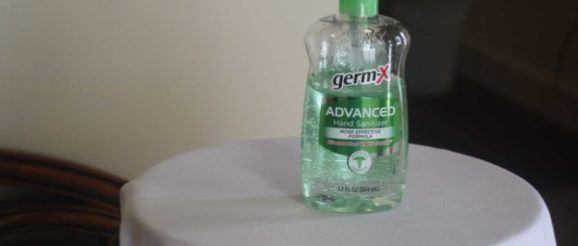Funeral industry adapts to COVID-19 regulations with digital innovation — Aroostook — Bangor Daily News — BDN Maine


Click here for the latest coronavirus news, which the BDN has made free for the public. You can support this mission by purchasing a digital subscription.
PRESQUE ISLE, Maine — New state regulations on public gatherings intended to curb the spread of COVID-19 have upended many industries across Maine, from restaurants to gyms to movie theaters.
But there is no postponing death.
And as Mainers continue to die during this pandemic, from COVID-19 and otherwise, funeral homes are left in a conundrum: the requirement that a population used to sprawling services with dozens or even hundreds of people honor the dead without a private service.
Initially, funeral homes stuck to Gov. Mills’ orders of allowing 10 or fewer people in the room to mourn in person. But because of Gov. Mills’ stay-at-home order on March 31, they are prohibited from holding private services from Thursday, April 2, to Thursday, April 30, according to a letter from Anne Head, commissioner of the Maine Department of Professional and Financial Regulation.
Funeral home staff do not need to go beyond their “routine” precautions when embalming or otherwise handling the bodies of COVID-19 victims, and there is no risk to being in the same room as the body of someone who has died from the virus, according to U.S. Centers for Disease Control and Prevention guidelines.
Funeral directors said the real danger is not from the deceased, but from the living attending memorial gatherings, as they are at-risk of infecting each other with COVID-19 if amassed in large numbers.
Funeral home staff across Maine — many of whom have spent decades in the industry — said the new limits on gatherings were unlike anything they had ever had to deal with. They represent a radical change for an age-old industry built on mass socializing between families and friends.
The changes have led funeral homes to innovate, using digital technology such as Zoom, Facetime and Facebook Live, to permit condolences from all over the country.
And though logistics are not always easy in this new normal, funeral staff said they would continue to work with families to give the best sendoff possible during this fraught time.
Michael Martel, local market director of Dignity Memorial — a network of funeral homes that includes Jones, Rich & Barnes in Portland — said the home had tried out a variety of solutions to replace traditional memorial services. Methods of organizing and connecting are crafted based on the individual requests of the family.
Before the private service ban took effect, Martel said the funeral homes had held graveside services in which most participants stayed in their cars, featured prayers from an off-site priest and displayed emailed-in condolences from loved ones who couldn’t attend the private ceremony.
In one service, only a priest and a handful of family members attended the indoor ceremony. But once the gathering left the building with the deceased, several attendees stationed outside held up signs displaying messages of acknowledgment and sympathy.
“[Funeral staff] are working really hard to come up with new creative offerings that can help families and comply with the rules and changes brought on by this unprecedented event,” Martel said.
Jim Fernald, funeral practitioner at Brookings-Smith Funeral Home in Bangor and president of the Maine Funeral Directors Association, said the association had worked closely with the governor’s office as they placed the limit on gatherings.
Recognizing the gravity of the situation, Fernald said the state association committed to not holding sizable memorial services, despite knowing it would significantly affect the industry.
Before the ban on private services, Fernald said his home had followed others across Maine by not holding any large ceremonies for several weeks now, allowing only small groups at services.
But other guests were present in new ways: in a recent service, several family members Facetimed others so that they could view and participate in the service.
Before the tighter restrictions, Doug Hunter, a funeral director at Duncan-Graves in Presque Isle, said his funeral home recommended that the small family groups attending its services avoid hugging and other physical contact as they mourned.
He said his home transitioned to broadcasting services by Facebook Live and Zoom while keeping those in the room to the then-10-person limit mandated by Gov. Janet Mills.
“It’s allowed a much larger audience to come in and see the service directly,” Hunter said. “And we are still able to abide by social distancing and keeping groups to a minimum.”
Watch: How does COVID-19 spread?
